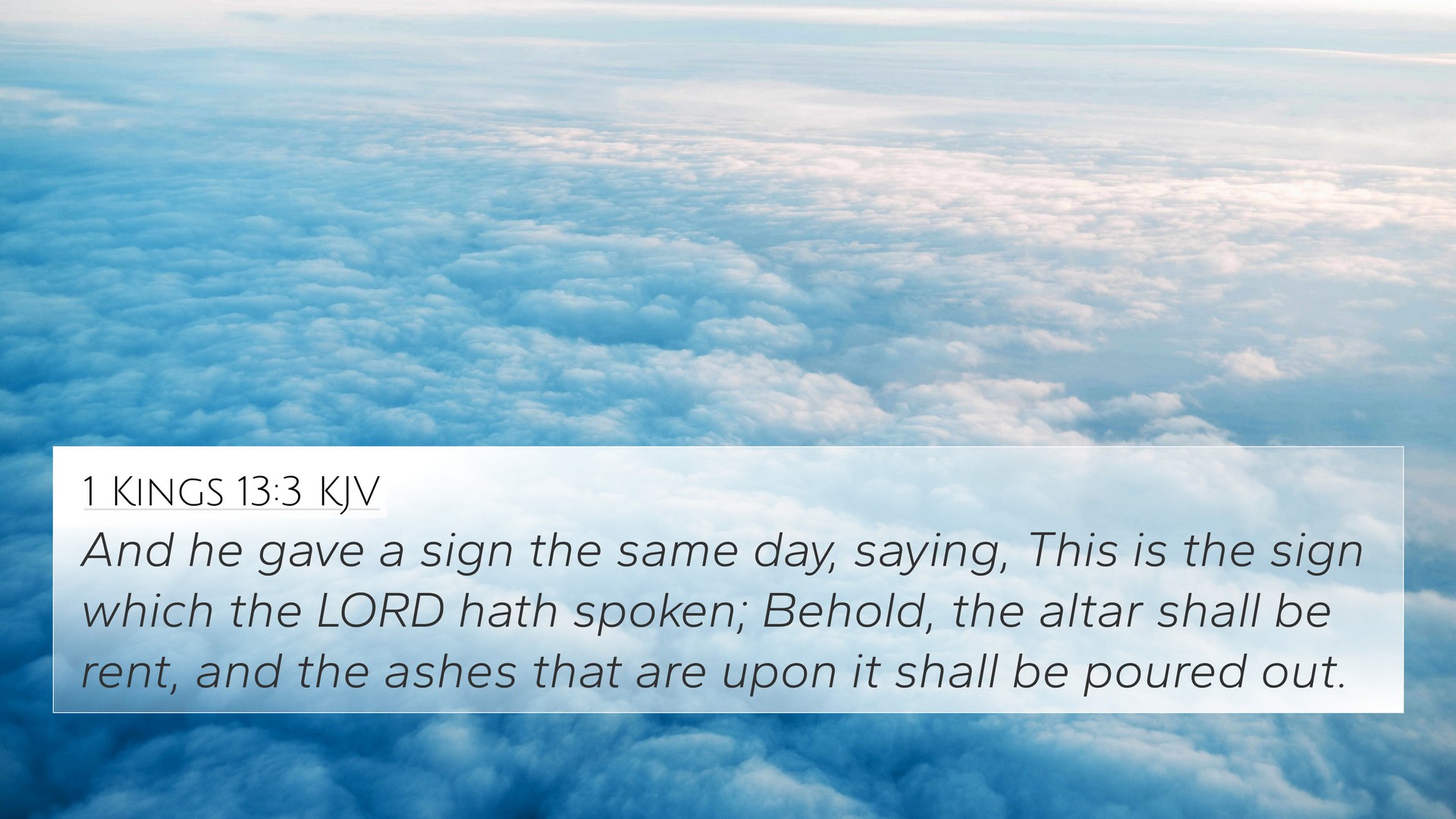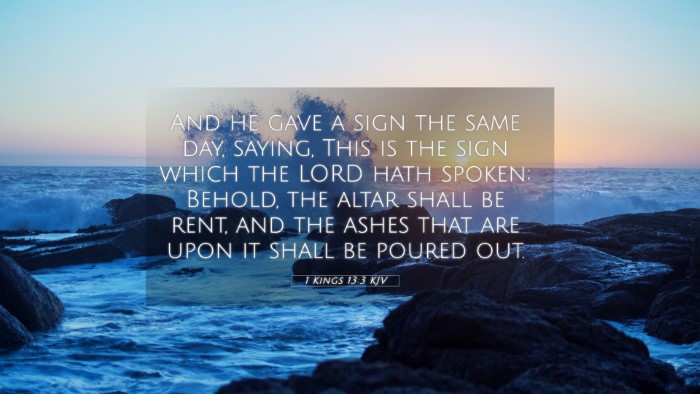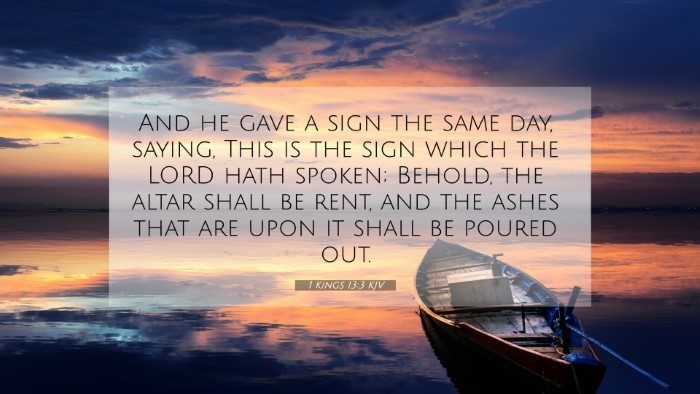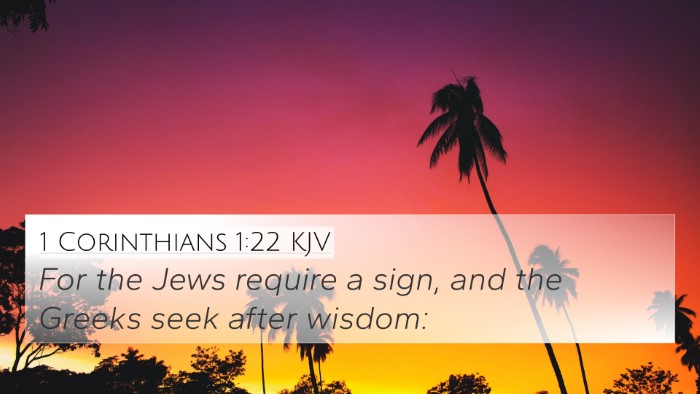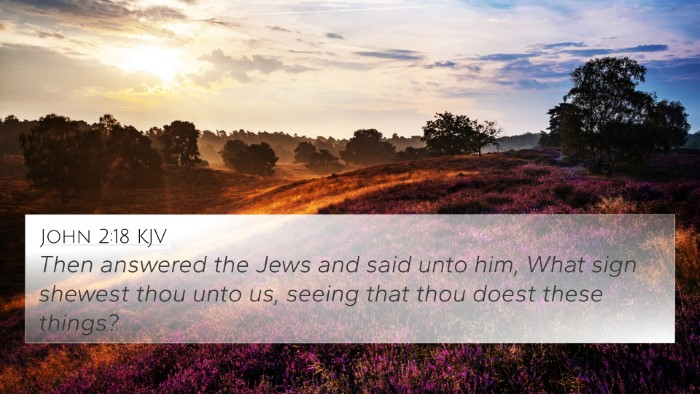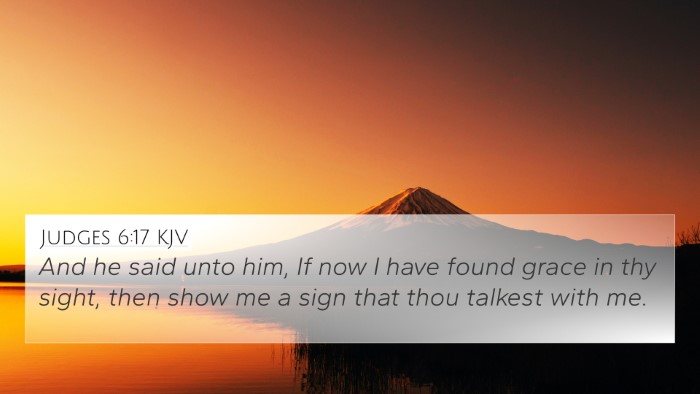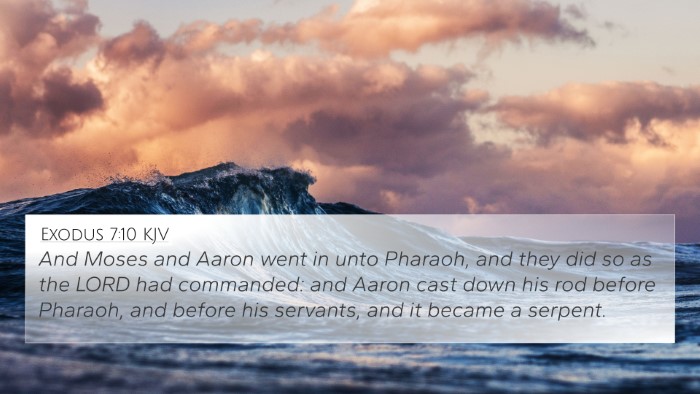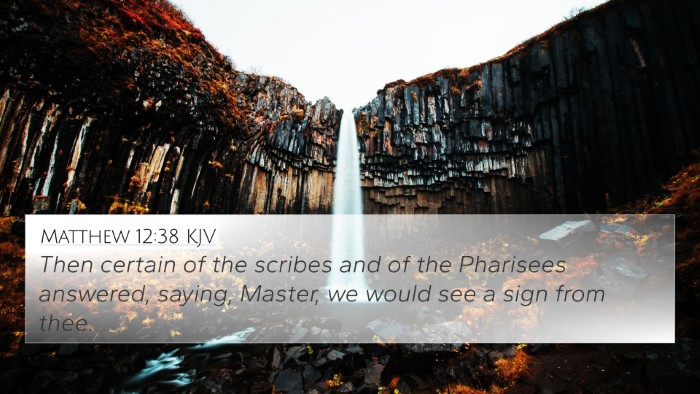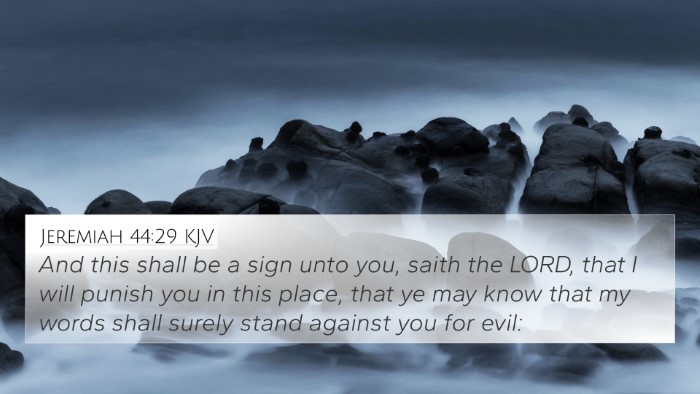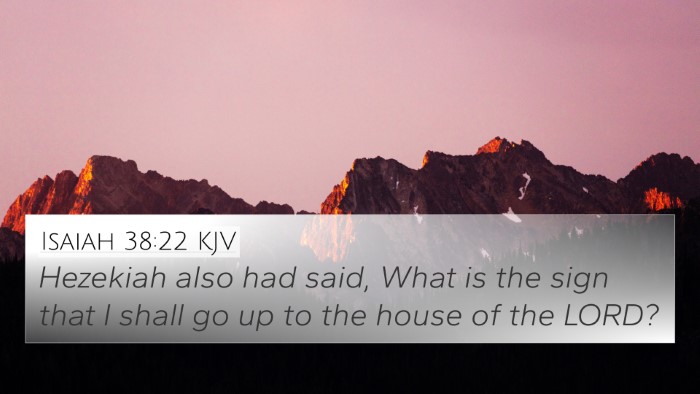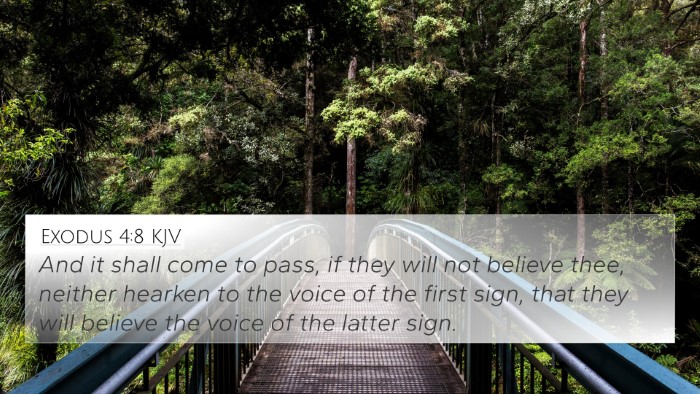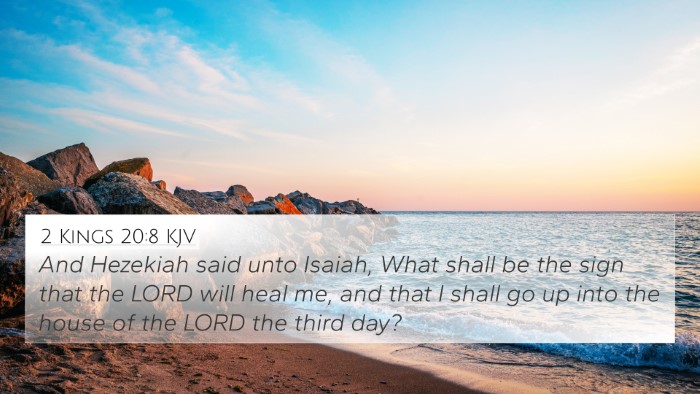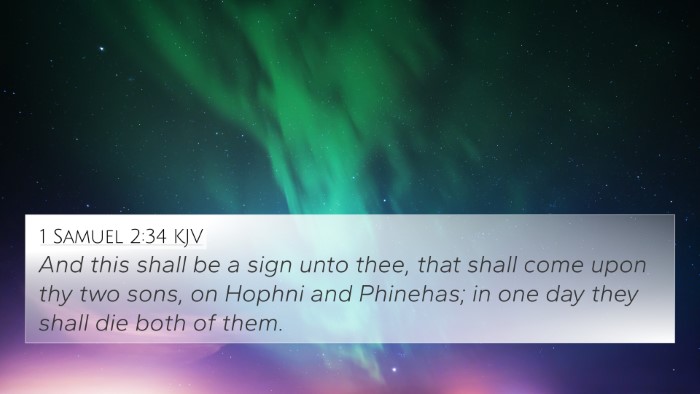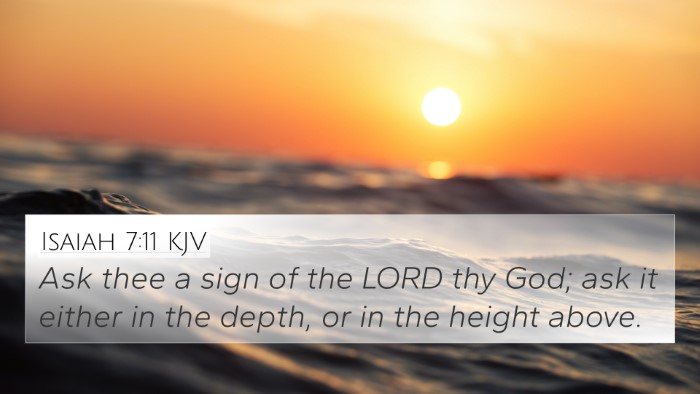Understanding 1 Kings 13:3
Verse: "And he gave a sign the same day, saying, This is the sign which the LORD hath spoken; Behold, the altar shall be rent, and the ashes that are upon it shall be poured out." (1 Kings 13:3)
This verse is a significant prophetic declaration concerning the judgment of idolatrous practices in Israel. An anonymous prophet announces a specific sign from God that would demonstrate God's authority and displeasure against the altar at Bethel, which had become a center for false worship.
Contextual Analysis
The context of 1 Kings 13:3 lies in the Israelite rebellion against God's commands, where Jeroboam set up golden calves for worship. The prophecy serves to reaffirm God's sovereignty and the consequences of turning away from true worship.
Commentary Insights
Matthew Henry's Commentary
According to Matthew Henry, the sign acts as a visible token from God, pointing out the impending judgment. Henry emphasizes the importance of recognizing divine signs as critical in understanding God's plans and purposes. The tearing of the altar symbolizes not merely physical destruction but also spiritual decay.
Albert Barnes' Commentary
Albert Barnes expands on the prophetic nature of the verse, noting that the immediate fulfillment of the sign strengthens God's message. He discusses how this act serves as both a warning and a means of divine retribution against apostasy. The act of rending the altar signifies a clear break from idolatry and the establishment of God's true order.
Adam Clarke's Commentary
Adam Clarke highlights the significance of signs in the prophetic tradition, describing how they alert the people to coming judgments. Clarke also notes that this act was designed to evoke repentance among the Israelites, yet it was met with resistance, illustrating the challenges faced by true prophets in a society steeped in sin.
Thematic Connections
This verse is connected to major themes in the Bible, particularly warning against idolatry, the judgment of God, and the importance of prophetic voices. It underscores the principle that God's truth and directives cannot be disregarded without consequence.
Related Bible Cross References
- 2 Kings 23:15 - "Moreover the altar that was at Bethel, and the high place which Jeroboam the son of Nebat, who made Israel to sin, had made, both that altar and the high place he brake down."
- 1 Kings 12:28-30 - Describes Jeroboam's action of setting up idols.
- Isaiah 44:9-20 - Discusses the futility of idol worship and the true God.
- Jeremiah 7:30-32 - Discusses God's judgment against those who practice idolatry.
- Ezekiel 22:2-3 - God calls out Jerusalem for its sin and idolatry.
- Hosea 8:4-6 - Talks about the judgment on Israel for worshipping idols.
- Micah 1:5 - Addresses the transgressions of Israel and Samaria.
- Matthew 12:30 - "He who is not with me is against me..." highlights the division between God and idolatry.
- Romans 1:18-25 - Discusses how humanity exchanges the truth of God for lies, leading to judgment.
- Revelation 21:8 - The fate of the idolaters is warned against in the New Testament context.
Conclusion
1 Kings 13:3 serves as a critical reminder of God's holiness and the dire consequences of straying from His commandments. The prophetic message communicated through this verse and its accompanying signs not only alerted the Israelites of impending judgment but also urged them to return to true worship. The thematic connections and cross-references enrich our understanding of the dangers of idolatry and the faithful nature of God’s warnings throughout scripture.
Further Research and Study
For those seeking deeper insights, consider utilizing a bible concordance or a bible cross-reference guide to explore more about similar themes and scriptures. This can enhance your understanding of bible verse parallels and offer tools for bible cross-reference study. Identifying connections between Bible verses can be invaluable for personal study or sermon preparation.
